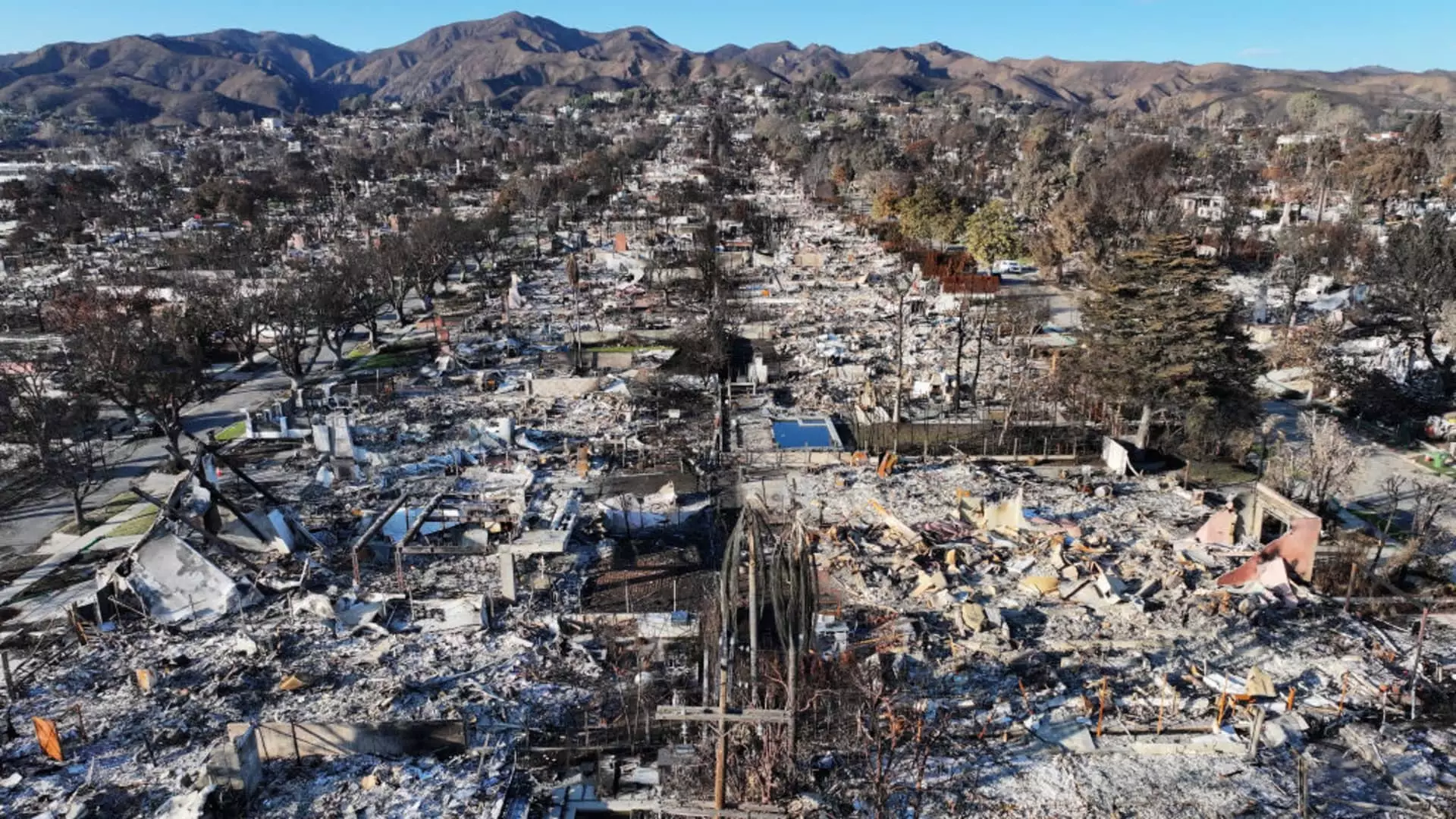The devastating wildfires in Los Angeles have left their mark not only on the environment but also on the financial landscape of the reinsurance industry, particularly affecting Germany’s major players, Munich Re and Hannover Re. These firms, which serve as buffers for primary insurance providers against catastrophic claims, reported staggering losses, shedding light on the vulnerability of even the most robust financial institutions when faced with environmental catastrophes. The combined losses of approximately 1.73 billion euros, or $1.9 billion, illustrate a stark reality: the unpredictability and severity of climate change-related events are presenting unparalleled challenges for reinsurers.
Munich Re and Hannover Re’s quarterly reports laid bare the financial hit — with Munich Re anticipating claims of around 1.1 billion euros attributable to the wildfires, and Hannover Re revealing a net individual loss of 631.4 million euros. This sharp increase in claims has triggered a red flag concerning the stability of the reinsurance market, which until now has operated under the assumption of historical loss patterns that seem increasingly outdated given the frequency and intensity of current natural disasters.
The Numbers Speak Volumes
The breakdown of Munich Re’s claims highlights a significant trend: 80% arose from the property-casualty segment, indicating that residential and commercial properties are failing to withstand the increasing ferocity of wildfires—causing financial strain not just on the reinsurers but also on the affected communities. This situation culminated in a shocking decline in net profit within Munich Re’s property-casualty sector of 72% year-on-year. In essence, reinsurance companies are becoming the canaries in the coal mine for environmental change, revealing just how interconnected insurance economies are with climate realities.
But what’s particularly alarming is the impact of these losses on investors. Both firms saw their share prices plummet, with Frankfurt-listed shares of Munich Re and Hannover Re trading approximately 4% lower the day of the announcement. Seen in the context of the European Stoxx 600 index, these two companies were among the worst performers, raising questions about investor confidence in a sector fraught with peril. The loss was not just financial; it was also a harbinger of future challenges that would require more innovative risk management solutions.
Management’s Response: Resilient or Reactive?
Despite the turmoil, CFO Christoph Jurecka’s comments about resilience and “prudent management” feel somewhat hollow in the face of such substantial losses. While some might interpret this as a commitment to strong operational strategies, others see it as a mere coping mechanism to mask deeper issues plaguing the industry. The fact that his firm is still sticking to a profit guidance of €6 billion for 2025, despite catastrophic fires dramatically impacting their operations, raises an eyebrow. It paints a picture of firms desperately trying to maintain an optimistic facade in a time when the data suggests tighter margins could become the norm.
In contrast, analysts have taken a more critical stance on Munich Re, characterizing its first-quarter results as “mixed” and expressing a negative sentiment toward its future performance. The sentiment indicates a burgeoning skepticism that the company could meet its ambitious targets, especially as the unpredictability of climate change looms larger. This scenario is further complicated for Hannover Re, which found a lift from strong investment performance but still felt the sting of heightened loss claims.
The Path Ahead for Reinsurers
What remains critical is the strategic pivot that reinsurers must undertake to navigate the new landscape marked by catastrophic events. The traditional models of risk, pricing, and capital allocation are being challenged, and those that cling to outdated methods risk suffering exponential losses in future disasters. As the market grapples with this dramatic shift, the ability to adapt offerings and reconsider coverage strategies will become essential.
Climate change is not merely an inconvenience; it is an existential threat to the financial stability of insurance firms worldwide. The figures from Munich Re and Hannover Re should serve as a wake-up call—a clear indication that ignoring the realities of our changing climate is no longer an option. Reinsurers must innovate, collaborate, and think critically about how they can operate sustainably within the harsh realities of an ever-volatile world, or risk succumbing to the very disasters they were designed to mitigate.

Leave a Reply